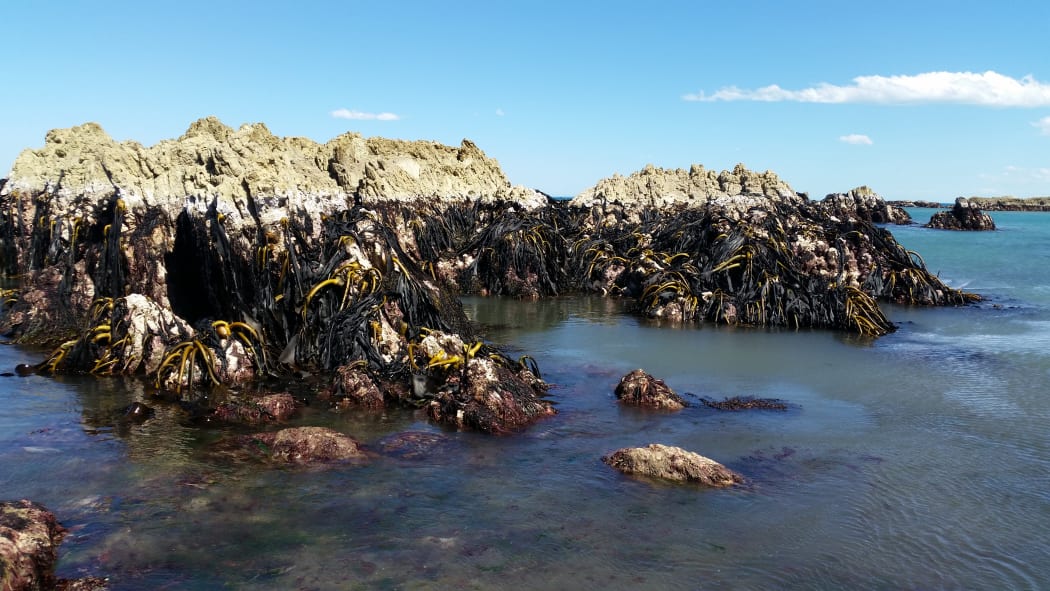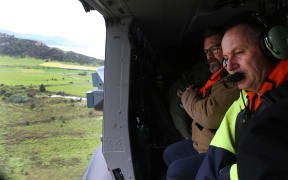This week's quake has had a devastating effect on Kaikoura's sealife, and it could take years for the shellfish stocks to bounce back, says a commercial paua fisherman.

On Ward beach, the coastal rock shelf was raised two metres by the force of the quake. Photo: RNZ / Kate Newton
Thousands of paua - along with crayfish, butterfish and other sealife - have been left exposed and to die, after the seabed was lifted metres out of the water by Monday's magnitude 7.5 quake.
Jason Baker, a paua diver, was part of a team that travelled from Cape Campbell to Clarence to assess the damage.
He said the seabed had risen anywhere from half a metre to six metres in some areas.
"The further south towards Kaikoura, the worse it got. We had a look in an area just south of Clarence and the devastation there was pretty amazing. I sort of came away from it feeling sick to be honest. Just the huge lifts, sort of five, six metre lifts or more in one particular reef. It's just changed the environment forever."
He said it was going to put substantial pressure on paua stocks, given the areas affected were where most young paua lived.
"Most pauas when they're little they go and hide in the rocks in the tidal area, so that's where they stay until they get to 80mm long, then they get out of the rocks and live in the open. So in most fisheries all your young stock that is coming through are living in the areas which now aren't going to see any water anymore."
He said it could take up to five years for numbers to get back to normal.
"Certainly the Kaikoura coastline, a very pristine and productive piece of coast is now changed forever.
"We tried to save the few that we could today. Every little bit you do helps, some of the fish that we shifted from out of the water back into the water survived, but others were perhaps too far gone, but realistically, it'll have a large roll-on effect. It's going to affect people's livelihoods."





